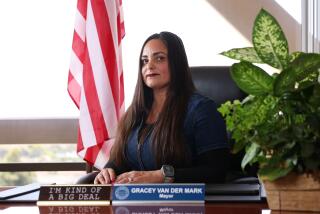‘Cure’ gays? No, fix the law
Believe it or not, California law requires health experts to find a cure for homosexuality. No joke: Welfare and Institutions Code Section 8050.
We can delete this code. We will. But first, we should know how it got there.
This 60-year-old relic was not some gay-baiting prelude to the McCarthy era. It came, rather, in response to public outcry over sex crimes in California, specifically the molestation-murder of a 6-year-old Los Angeles girl. The murderer was not a gay man. There was no connection between the crime and homosexuality at all.
Even so, before the dust had settled, well-meaning California legislators passed a law that not only required health officials to seek “the causes and cures of homosexuality” but likened people who are gay to child molesters. Amazingly, it’s still on the books. You might call it “Linda’s Law.”
Linda Joyce Glucoft went out to play after dinner on Nov. 14, 1949, and never came home. She was raped and murdered by the grandfather of one of her playmates, a repeat sex offender who offered no resistance when arrested in a downtown bar. He admitted to the gruesome slaying, to wrapping her body in a colorful blanket and hiding it near an incinerator. He told police he was acting on an indescribable compulsion and that he hadn’t made her suffer long. He was the personification of what was then called a sexual psychopath.
The rape and murder struck a nerve. There had been nine such slayings in Los Angeles in the 2 1/2 decades before Linda’s murder. But in the following week, police fielded 25 reports of molestation. Public outcry grew. It took just days to gather 10,000 signatures on a petition demanding action from Sacramento.
Sacramento was ready to oblige. Even before the killer had been sentenced to death, Gov. Earl Warren called a special session of the Legislature to deal with the issue of sexual predators. Experts flocked to the state capital with explanations and solutions.
Judge A.A. Scott, presiding judge of the Juvenile Court in Los Angeles, complained that the state lacked tools to address the problem. “The weakness,” he said, “lies in the Department of Mental Hygiene. There is no program under which to treat these sexual psychopaths.”
Scott would soon get his program. Aside from beefed-up enforcement policies, lawmakers sought an academic approach. They would order the state’s mental hospitals and its universities to solve the problem.
It was at this step, as the Legislature defined the role of science in solving the “sexual psychopath” problem, that gay people -- simply because they vexed the psychiatric profession -- were swept up in the net.
In 1950, homosexuality remained, officially, a mental disorder. So when the Legislature promised funding for a study into the causes and cures of sexual deviance, it was, tragically, natural to add homosexuality to the list.
So, in April of that year, almost exactly 60 years ago, one of the bills Warren signed to combat the scourge of child molestation included a command that the “Department of Mental Hygiene plan, conduct and cause to be conducted scientific research into the causes and cures of sexual deviation, including deviations conducive to sex crimes against children, and the causes and cures of homosexuality, and methods of identifying potential sex offenders.”
You don’t need a law degree to see that homosexuality was shoe-horned into a sentence otherwise focused on the task at hand.
Over the decades, a huge volume of sex-offender law has replaced this old statute. But the call for a cure to homosexuality, and the suggestion that it is somehow linked to child molestation and murder, has survived many rounds of revision. As recently as 1977, the code was moved rather than deleted, and the language tweaked to add a “shall” here and a “to” there. It lives now as Section 8050 of the Welfare and Institutions Code.
That code is like the old race restrictions on property deeds. The fact that it came more from ignorance than hate might excuse its enactment, but it doesn’t relieve us of the duty of blotting it out.
Assembly Bill 2199, which faces its first hearing Tuesday before the Public Safety Committee, would undo 60 years of libel and give California a set of law books that reflects science and values that were sadly absent in 1950.
Bonnie Lowenthal, author of AB 2199, represents Long Beach, San Pedro, Signal Hill, the Palos Verdes Peninsula and Catalina Island in the Assembly.
More to Read
Get the L.A. Times Politics newsletter
Deeply reported insights into legislation, politics and policy from Sacramento, Washington and beyond. In your inbox three times per week.
You may occasionally receive promotional content from the Los Angeles Times.










